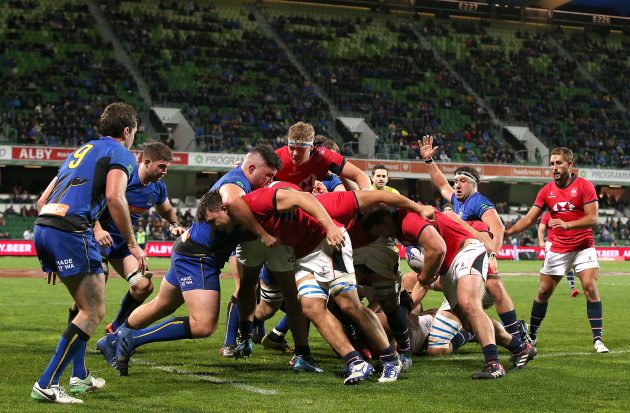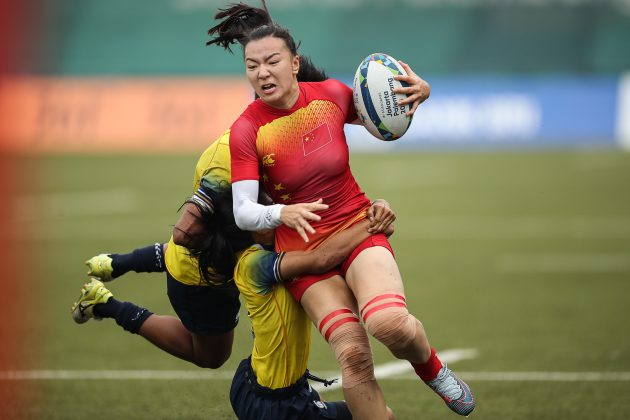With many wanting the Premiership to break into new markets, we consider if China is really the answer
Rugby in China: Can the English Premiership make an impact?
RUGBY IS straining to expand, to conquer new frontiers. And just over the horizon, we are told, are new markets. It appears faraway lands are just waiting for the game of union to take off.
On Sunday, The Daily Mail uncovered details from the minutes of several Premiership Rugby board meetings, in the build-up to a £200m deal with private equity firm CVC.
Whilst a lot of debate has come from what the piece said about scrapping promotion and relegation in the Premiership, there was another interesting thread: the notion that the Chinese sports market was one worth exploring alongside the US one. Could the Premiership take fixtures over to Asia, as they had done in the past in the USA?
“In my opinion rugby currently does not have the profile and popularity in China amongst the local population to fill the stands at these types of exhibition games, so you’d either be relying on expats living there and/or the overseas travel market to get bums on seats,” says the CEO of the Hong Kong Rugby Union, Robbie McRobbie.
“English Premiership rugby is currently being shown on TV in China, and although this is on the subscription channel CCTV5+ it shows what can be achieved by individuals who know their way around the system.
“Fundamentally, though, there needs to be grass-roots investment to build interest in the game – but this brings with it multiple challenges.

In the big city: The Webb Ellis Cup in Beijing last year (Getty Images)
“The structure of sport in China is complex, with various degrees of influence at national, provincial and city level. It is also a vast geographical area, which brings with it significant logistical challenges.
“Currently the HKRU are in discussions with the China Rugby Union around collaboration in the Greater Bay Area, which consists of Hong Kong, Macau and the nine southernmost cities in the Guangdong Province – this is a relatively small area, but contains a population of 67m people!”
You can understand why some are salivating over the prospect of breaking into such a market. After all, there are roughly 1.4bn people in China and rugby is already on TV there. Yet it’s not that simple.
“First of all, there is a huge difference between being on CCTV-5, which is the main sports channel in national broadcaster CCTV’s free-to-air channel, and its paid sister channel CCTV5+,” clarifies Mark Dreyer, the editor of China Sports Insider, based in Beijing.
“A typical Premiership game from last year drew fewer than 80,000 viewers at any one time. Every sport is currently trying to crack the China market, and in truth rugby is way, way down the order. To give some perspective as to where it ranks, the Chinese for ‘rugby’ is often confused with the Chinese for ‘American football’, so a sizeable percentage of the population here might not even know what the game is.
“The number of foreign companies (in any industry) who have entered China with dollar signs in their eyes thinking they ‘only have to capture 1% of the audience’ is endless; the number of success stories is far shorter.”
Dreyer holds up the example of World Rugby’s 2016 deal with Alisports – the sporting arm of China’s global e-commerce powerhouse, Alibaba – as an allegory for how tough it is to make a significant difference in the sporting landscape there. It was announced that there would be a $100m investment into Chinese rugby by the company, only for it to be ‘postponed’ after everything ground to a halt. Dreyer says he was not surprised.
Related: Plans to bring professional rugby to China stall
Dreyer also says he is very sceptical of numbers released by market analytics group Nielson Sport and World Rugby, in May, claiming that there are now nearly 800m rugby ‘fans’ in the world and that there are nearly 33 million fans in both China and the US. Dreyer calls these numbers “patently ludicrous”.

Exhibition: Hong Kong faced Western Force last year (Getty Images)
He explains: “Without access to the survey data, it’s impossible to know for sure, but I can only assume that they incorrectly extrapolated for 1.4bn people based on a small sample size drawn from sport-friendly urbanites – of which in China there are about 300 million. In addition to that, see my earlier comment about confusion over the sport’s name, plus Chinese people’s reticence to answer ‘no’ to a question. These are both factors that would seriously distort this data.
“I would be surprised if the results even returned a statistically relevant sample size of those who conclusively said they liked rugby, in which case extrapolation can’t even be done. Hong Kong is a very different market – rugby is huge there – but anyone who has spent time on the mainland can tell you that rugby just simply isn’t part of the sporting conversation at the moment.”
Of course that is not to say that it never will be. In late February a new elite competition called Global Rapid Rugby will kick off in the Asia-Pacific region. The World Rugby-ratified league, led by mining magnate Andrew ‘Twiggy’ Forrest, offers up AUD$1m to whichever of the teams from Perth, Fiji, Samoa, Japan, Hong Kong, Singapore or Malaysia triumphs.
In announcing the new league, Forrest said the competition would promote, amongst other things, rapid development of local rugby communities, rapid development of new market and a fresh approach to broadcasting and game-day experiences. On the competition’s official site, Forrest says: “Our new and dynamic brand will bring a whole new support base, inspire young people and attract new and much needed spectator and corporate interest.”
Related: Hong Kong miss out on Rugby world Cup
McRobbie says that while there is currently more awareness of sevens in China than 15s – perhaps aided by China’s women competing on the World Sevens Series – it is important for teams to have Chinese ‘heroes’ playing for professional sides. To this end, the Hong Kong-based Global Rapid Rugby side South China Tigers have two squad members who are on the Chinese national team.

Catching the eye: China women at the Asian Games sevens competition (Getty Images)
The CEO concludes: “There is room for both GRR and the English Premiership to succeed in China, but there is also room for them both to fail.
“Anyone who wants instant success will be disappointed. Those with patience, commitment, a willingness to adapt to the local culture and invest in grass-roots development will have a chance of reaping eventual reward.”
The latest issue of Rugby World is in shops now.






